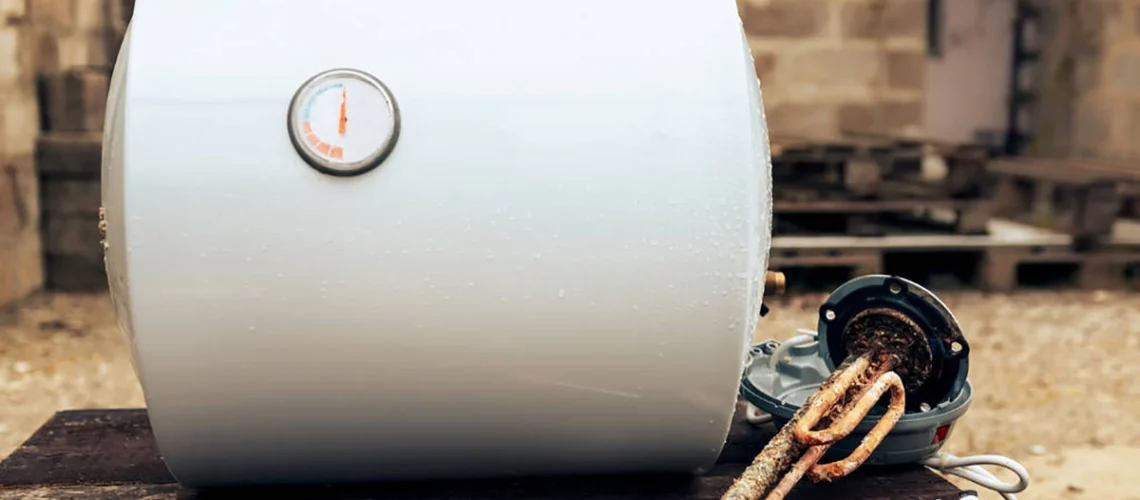Your water heater is one of the most important appliances in your home, yet it’s often overlooked until something goes wrong. Neglecting regular maintenance can lead to sediment buildup, corrosion, leaks, and even complete failure of the unit. When problems are left unchecked, they often result in costly repairs or the need for premature replacement. Understanding how to extend the life of your hot water heater can save you significant time, money, and inconvenience in the long run.
Contents
- 1 Benefits of Regular Care and Inspection
- 2 Common Factors That Shorten Water Heater Lifespan
- 3 Step-by-Step Guide to Extending the Life of Your Water Heater
- 4 Special Tips for Tankless Water Heaters
- 5 When to Call a Professional for Maintenance
- 6 Cost-Effective Upgrades to Improve Longevity
- 7 Final Thoughts on Maximizing Water Heater Lifespan
Benefits of Regular Care and Inspection
Routine inspection and maintenance help you detect small issues before they turn into major problems. This not only prolongs the lifespan of the appliance but also keeps it running efficiently, lowering energy costs. Many homeowners are surprised at how a few simple tips for extending the life of your water heater can make it last years longer while providing consistent hot water.
Common Factors That Shorten Water Heater Lifespan
Sediment Buildup
Over time, minerals from the water settle at the bottom of the tank, creating a thick layer of sediment. This buildup reduces heating efficiency and can cause overheating, which damages the tank lining. Flushing the tank regularly is one of the best ways to extend the life of your water heater.
Corrosion and Rust
Corrosion occurs when metal components are exposed to oxygen and moisture. Rust can quickly spread, leading to leaks or even tank failure. The anode rod is designed to prevent corrosion, but it needs to be inspected and replaced periodically.
High Water Pressure
Excessive water pressure puts stress on your plumbing system, including the water heater. If the pressure exceeds recommended levels, it can damage seals, joints, and the tank itself. Installing a pressure-reducing valve can prevent unnecessary wear and tear.
Poor Installation or Sizing
A water heater that is too small for household needs will be overworked, while one that’s too large may waste energy. Ensuring proper installation and correct sizing from the start is critical to avoid early breakdowns.
Don’t waste time on endless attempts to clean it – order a professional service and be sure to report problems with the shower drain.
📞 Call us at (905) 625-8777 or Book Your Service Online today!Step-by-Step Guide to Extending the Life of Your Water Heater
Flush the Tank Regularly
Draining a few gallons from your tank every few months removes sediment and helps maintain heating efficiency. For heavily mineralized water, a complete flush at least once a year is essential.
Check and Replace the Anode Rod
The anode rod attracts corrosive elements, protecting the tank lining. Inspect it annually and replace it when more than 50% of the rod is corroded. This is one of the most effective popular mechanics extend the life of your water heater recommendations.
Insulate the Tank and Pipes
Adding insulation to your water heater and surrounding pipes reduces heat loss, saves energy, and reduces strain on the appliance. This is a cost-effective measure that also improves efficiency.
Adjust the Thermostat to the Right Temperature
Keeping the water heater set at around 120°F (49°C) prevents overheating, reduces the risk of scalding, and extends the unit’s life by lowering stress on components.
Test the Temperature and Pressure Relief Valve (T&P Valve)
This safety device prevents excessive pressure buildup in the tank. Testing it annually ensures it’s functioning correctly and reduces the risk of dangerous malfunctions.
Special Tips for Tankless Water Heaters
Descaling and Flushing
Tankless systems require regular descaling to remove mineral deposits that can block water flow. Annual flushing with a descaling solution will maintain peak performance.
Maintaining Proper Ventilation
Tankless units need adequate airflow to prevent overheating. Regularly check vents and air intakes for blockages such as dust or debris.
When to Call a Professional for Maintenance
Signs Your Water Heater Needs Expert Attention
If you notice unusual noises, fluctuating water temperature, rusty water, or frequent leaks, it’s time to call a licensed plumber. These issues may indicate deeper problems that require professional repair.
Annual Professional Inspection Benefits
A yearly inspection can detect issues invisible to the untrained eye, such as internal corrosion, worn seals, or faulty wiring. Professional servicing ensures your unit runs safely and efficiently.
Cost-Effective Upgrades to Improve Longevity
Install a Water Softener
If you live in an area with hard water, installing a softener will reduce mineral deposits and prolong the life of your water heater.
Add an Expansion Tank
This device absorbs excess water pressure, protecting your water heater and plumbing from damage caused by thermal expansion.
Final Thoughts on Maximizing Water Heater Lifespan
Knowing how to extend the life of your hot water heater is a smart investment in your home’s comfort and efficiency. By following these tips for extending the life of your water heater—from regular flushing to professional inspections—you can enjoy reliable hot water for many years. A little preventive care now can save you from costly replacements later.




